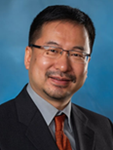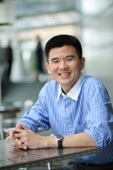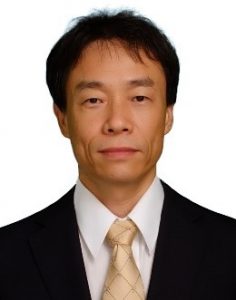Prof. Tony Q.S. Que
Bio:
Tony Q.S. Quek received the B.E. and M.E. degrees in Electrical and Electronics Engineering from Tokyo Institute of Technology, respectively. At Massachusetts Institute of Technology, he earned the Ph.D. in Electrical Engineering and Computer Science. Currently, he is the Cheng Tsang Man Chair Professor with Singapore University of Technology and Design (SUTD) and ST Engineering Distinguished Professor. He also serves as the Head of ISTD Pillar, Director for Future Communications R&D Programme, Sector Lead for SUTD AI Program, and the Deputy Director of SUTD-ZJU IDEA. His current research topics include wireless communications and networking, 6G, network intelligence, non-terrestrial networks, and open radio access network.
Dr. Quek has been actively involved in organizing and chairing sessions and has served as a TPC member in numerous international conferences. He is currently serving as an Area Editor for the IEEE Transactions on Wireless Communications. He was an Executive Editorial Committee Member of the IEEE Transactions on Wireless Communications, an Editor of the IEEE Transactions on Communications, and an Editor of the IEEE Wireless Communications Letters.
Dr. Quek received the 2008 Philip Yeo Prize for Outstanding Achievement in Research, the 2012 IEEE William R. Bennett Prize, the 2016 IEEE Signal Processing Society Young Author Best Paper Award, the 2017 CTTC Early Achievement Award, the 2017 IEEE ComSoc AP Outstanding Paper Award, the 2020 IEEE Communications Society Young Author Best Paper Award, the 2020 IEEE Stephen O. Rice Prize, the 2020 Nokia Visiting Professorship, the 2022 IEEE Signal Processing Society Best Paper Award, and the 2021-2023 World’s Top 2% Scientists. He is a Fellow of IEEE and a Fellow of the Academy of Engineering Singapore.
Prof. Nei Kato
Bio:
Nei Kato has been engaged in research on computer networking, wireless mobile communications, satellite communications, ad hoc & sensor & mesh networks, UAV networks, smart grid, AI, IoT, Big Data, and pattern recognition. He has published more than 500 papers in prestigious peer-reviewed journals and conferences(Google Scholar citation 28000, h-index 87). He is the Editor-in-Chief of IEEE Internet of Things Journal, the Fellow Committee Chair of IEEE Vehicular Technology Society, Chair of IEEE Communications Society Sendai Chapter, and the Area Editor of IEEE Transactions on Wireless Communications. He served as the Vice-President (Membership & Global Activities) of IEEE Communications Society(2018-2021), the Editor-in-Chief of IEEE Network Magazine (2015-2017), the Editor-in-Chief of IEEE Transactions on Vehicular Technology(2017-2021), a Member-at-Large on the Board of Governors, IEEE Communications Society(2014-2016), a Vice Chair of Fellow Committee of IEEE Computer Society(2016), and a member of IEEE Communications Society Award Committee (2015-2017). He has also served as the Chair of Satellite and Space Communications Technical Committee (2010-2012) and Internet of Things, Ad Hoc and Sensor Networks Technical Committee (2014-2015) of IEEE Communications Society. His awards include Minoru Ishida Foundation Research Encouragement Prize(2003), Distinguished Contributions to Satellite Communications Award from the IEEE Communications Society, Satellite and Space Communications Technical Committee(2005), the FUNAI information Science Award(2007), the TELCOM System Technology Award from Foundation for Electrical Communications Diffusion(2008), the IEICE Network System Research Award(2009), the IEICE Satellite Communications Research Award(2011), the KDDI Foundation Excellent Research Award(2012), IEICE Communications Society Distinguished Service Award(2012), IEICE Communications Society Best Paper Award(2012), Distinguished Contributions to Disaster-resilient Networks R&D Award from Ministry of Internal Affairs and Communications, Japan(2014), Outstanding Service and Leadership Recognition Award 2016 from IEEE Communications Society Ad Hoc & Sensor Networks Technical Committee, Radio Achievements Award from Ministry of Internal Affairs and Communications, Japan (2016), IEEE Communications Society Asia-Pacific Outstanding Paper Award(2017 and 2019), Prize for Science and Technology from the Minister of Education, Culture, Sports, Science and Technology, Japan(2018), Award from Tohoku Bureau of Telecommunications, Ministry of Internal Affairs and Communications, Japan(2018), IEEE Transactions on Computers 2018 Best Paper Award, IEEE Communications Society Green Communications and Computing Technical Committee Distinguished Technical Achievement Recognition Award(2019), Clarivate Analytics Highly Cited Researchers(2019,2020,2021,2022,2023), IEEE Vehicular Technology Society Outstanding Service Award(2022), IEEE Vehicular Technology Society The Stuart F. Meyer Memorial Award(2023), and Best Paper Awards from IEEE ICC/GLOBECOM/WCNC/VTC.

Prof. SHIWEN Mao
Bio:
Prof. Mao’s research interest includes wireless networks, multimedia communications, and smart grid. He is a Distinguished Lecturer of IEEE Communications Society and IEEE Council of RFID, and the editor-in-chief of IEEE Transactions on Cognitive Communications and Networking. He was the General Chair of IEEE INFOCOM 2022, a TPC Chair of IEEE INFOCOM 2018, and a TPC Vice-Chair of IEEE GLOBECOM 2022. He received the IEEE ComSoc MMTC Outstanding Researcher Award in 2023, the SEC (Southeastern Conference) 2023 Faculty Achievement Award for Auburn, the IEEE ComSoc TC-CSR Distinguished Technical Achievement Award in 2019, the Auburn University Creative Research & Scholarship Award in 2018, and the NSF CAREER Award in 2010, and several service awards from the IEEE. He is a co-recipient of the 2022 Best Journal Paper Award of IEEE ComSoc eHealth Technical Committee, the 2021 Best Paper Award of Elsevier/KeAi Digital Communications and Networks Journal, the 2021 IEEE Internet of Things Journal Best Paper Award, the 2021 IEEE Communications Society Outstanding Paper Award, the IEEE Vehicular Technology Society 2020 Jack Neubauer Memorial Award, the 2018 Best Journal Paper Award and the 2017 Best Conference Paper Award from IEEE ComSoc MMTC, and the 2004 IEEE Communications Society Leonard G. Abraham Prize in the Field of Communications Systems. He is a co-recipient of the Best Paper Awards from IEEE GLOBECOM 2023 (two), 2019, 2016, and 2015, IEEE ICC 2022 and 2013, and IEEE WCNC 2015, and the Best Demo Awards from IEEE INFOCOM 2022 and IEEE SECON 2017.



